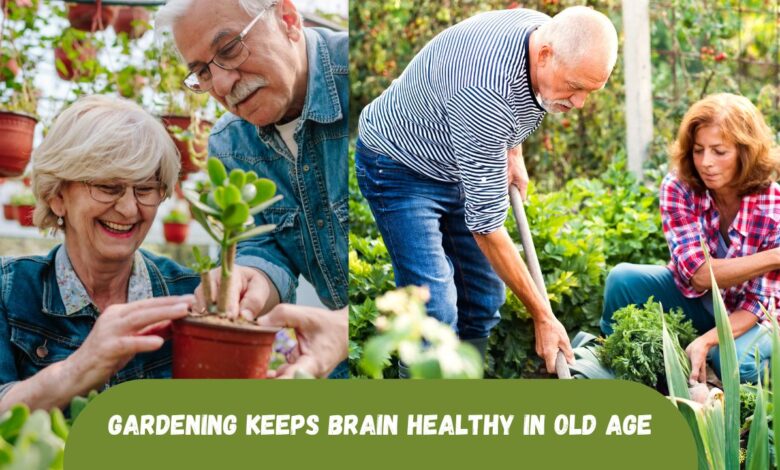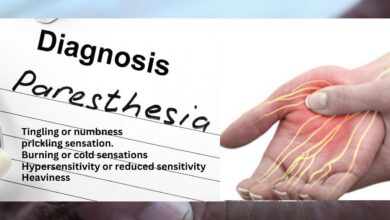
Discover how gardening keeps the brain healthy in old age. Explore the physical, mental, and social benefits of gardening for seniors and tips for getting started
Introduction
As we get older, our brains change in ways that can affect how we think and remember things. Common problems include memory loss, difficulty focusing, and slower thinking. Serious conditions like dementia and Alzheimer’s disease also become more common in older people. These changes can make life harder and affect our independence. This is why it’s important to keep our brains healthy as we age.
Common Brain Problems in Old Age
Memory Loss
Many older people have trouble remembering things. This can be mild or very severe, as in Alzheimer’s disease.
Difficulty Focusing
Older adults often find it hard to concentrate and pay attention, which can make everyday tasks difficult.
Slower Thinking
Older people might think and respond more slowly. This can make it harder to handle new information or do several things at once.
Dementia and Alzheimer’s Disease
Dementia is a general term for a serious decline in mental ability that interferes with daily life. Alzheimer’s disease is the most common type of dementia. It involves the gradual death of brain cells, leading to memory loss and other cognitive problems.
Keeping our brains healthy as we age is important for maintaining a good quality of life and independence. While cognitive decline is common in older people, making healthy lifestyle choices like exercising regularly, engaging in mental activities, eating well, and socializing can help. Gardening is a particularly beneficial activity because it combines physical, mental, and social benefits, making it a great way to support brain health in old age.
Benefits of Physical Activity in Gardening
Gardening involves many physical activities such as digging, planting, and weeding. These activities are good exercise for the body. Exercise increases blood flow to the brain and releases endorphins, which are chemicals that make us feel good. Regular physical activity has been shown to support brain health. Compared to other forms of exercise, gardening is unique because it also engages the mind.
Mental Stimulation through Gardening
Gardening is not just physical; it also involves a lot of mental activity. Planning a garden, solving problems like pest control, and remembering how to care for different plants all require thinking. These activities help keep the mind sharp. Additionally, learning new things about plants and gardening techniques stimulates the brain and promotes continuous learning.
Social Interaction and Emotional Well-being
Gardening can be a social activity. Many people join community gardens or gardening clubs. Social interaction is important for mental health, and gardening provides a way to connect with others. It also helps reduce stress, which has a positive impact on emotional well-being. Gardening offers a peaceful and productive way to relax and enjoy nature.
Exposure to Nature and Its Cognitive Benefits
Being outdoors and spending time in nature has many benefits for the mind. Studies have shown that exposure to nature can improve cognitive function. Gardening provides an easy way to spend time outside and enjoy these benefits. It allows seniors to experience the sights, sounds, and smells of nature, which can be very soothing.
Case Studies and Scientific Research
Several studies have explored the link between gardening and brain health. For example, research has shown that gardening can reduce the risk of dementia and improve mental clarity. Personal stories from seniors who garden regularly often highlight improvements in mood and cognitive abilities. Experts in brain health and aging also support gardening as a beneficial activity.
Practical Tips for Seniors Interested in Gardening
For seniors who want to start gardening, there are many ways to get involved, even with physical limitations. Using adaptive gardening tools can make tasks easier. Raised garden beds or container gardening can reduce the need to bend or kneel. Indoor gardening or small-space gardening can also be good options for those with limited mobility.
Also Read:The Health Benefits Of Kerala’s True Turmeric
Conclusion
Gardening offers many benefits for brain health in old age. It combines physical exercise, mental stimulation, social interaction, and exposure to nature. All these factors contribute to keeping the brain healthy. Seniors and their caregivers should consider gardening as a fun and rewarding activity that supports overall well-being.If you are a senior or care for one, consider starting a garden. Share your experiences or ask questions in the comments section below. For more information, check out related articles or resources on how to begin gardening. Join a local gardening group to connect with others and enjoy the many benefits gardening has to offer.




